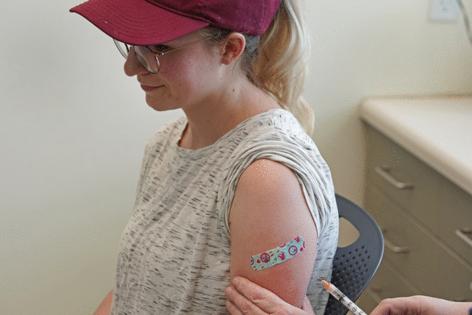Why some adults may need another dose of measles vaccine
Published in News & Features
A rising number of measles cases in the U.S. this year is raising concerns over a comeback of a disease that was declared eliminated in this country 24 years ago.
A measles report from the Centers for Disease Control and Prevention last week concluded that the spike in cases means more public health efforts are needed to increase routine vaccination coverage.
This year there have been 121 infections reported in 17 states, according to the Centers for Disease Control and Prevention. That is well above the total of 58 cases documented for the country for all of 2023.
While the numbers might seem low, measles is a serious illness that can lead to severe complications.
The airborne virus is also highly contagious. If one person has it, up to 90% of the people close to that person who are not immune will also become infected, according to the CDC.
Falling vaccination rates and a rise in cases globally are raising questions for older adults who got a measles vaccine a long time ago, or maybe they aren’t sure if they ever got vaccinated as a child.
Here’s what you need to know about the measles vaccine and what to do if you are unsure about your vaccination status.
—People born before 1957 are nearly always immune. The measles vaccine was made available in 1963, but in the decade before that virtually every child got measles by 15, making them immune. The CDC considers people born before 1957 to be protected from measles.
—But for those born later, it may not be so simple. Measles vaccines first became available in 1963. Laws requiring a measles vaccine before attending school rolled out slowly and over the years so not all children were automatically vaccinated. Initially, there were two vaccines: a live attenuated version (which is a live form of the virus weakened in medical labs), or a “killed” vaccine (which contains the dead virus), which was not considered effective and is no longer used.
So some people who received the vaccine between 1963 and 1967 may have gotten a dose of the killed vaccine and they should consider getting an updated vaccine, according to Dr. Jayne Morgan, executive director of health and community education for Piedmont Healthcare.
...continued
©2024 The Atlanta Journal-Constitution. Visit at ajc.com. Distributed by Tribune Content Agency, LLC.







Comments